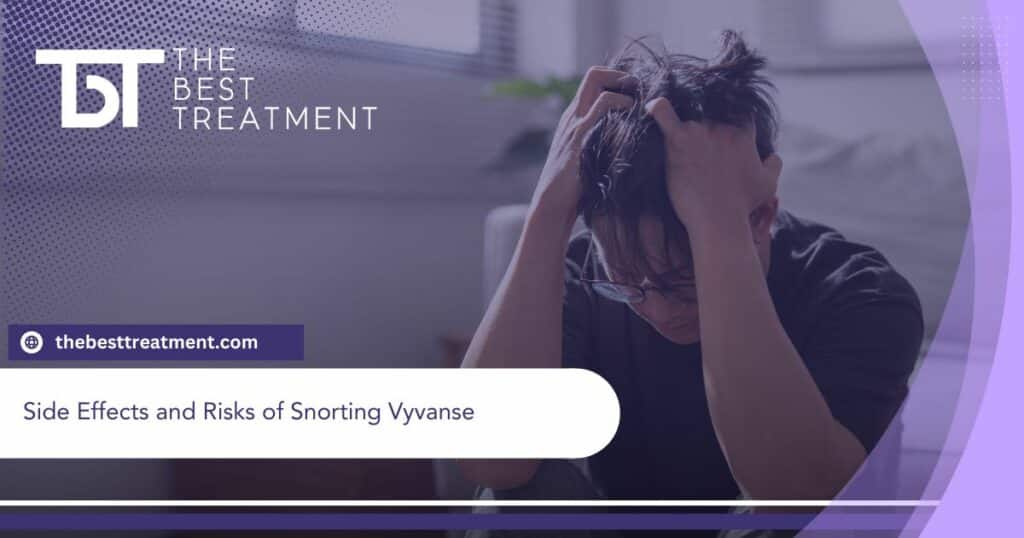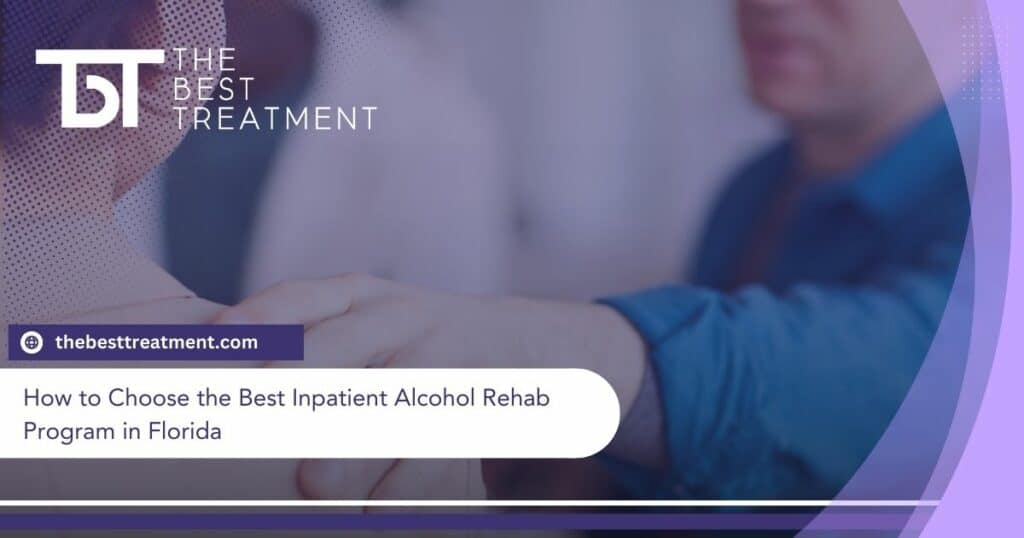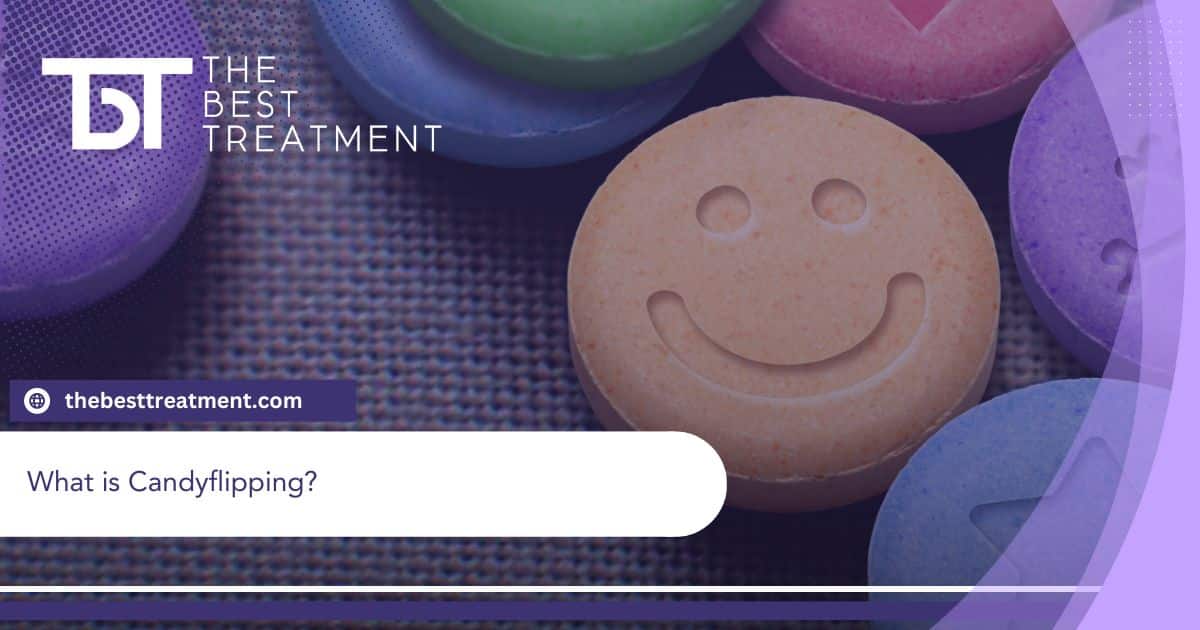Table of Contents
If you use illicit drugs, there is a risk of long-term harm, including physical dependence and addiction. Drug addiction can disrupt every aspect of your life, from your mental and physical health to your relationships and future opportunities. Addiction can also cause severe physical health complications and become life-threatening.
People may not always understand the risks or dangers of using recreational drugs. They may use or mix them with other substances in ways that can be dangerous.
What is Candyflipping?
Candyflipping is a term that means mixing LSD and MDMA. People who combine these drugs may experience dangerous side effects. It is crucial to understand how dangerous candyflipping can be and seek treatment for substance abuse when you need it.
This article will explore the risks of candyflipping and how to find treatment for a substance use disorder (SUD). Contact the specialists at The Best Treatment now to learn about our comprehensive treatment programs or to schedule an intake assessment.
The Effects and Risks of MDMA
MDMA (ecstasy) is an illicit synthetic drug that produces hallucinogenic and stimulant effects. People who use MDMA experience heightened senses, increased energy, euphoria, and other pleasurable effects.
There are many slang terms for MDMA, including:
- Molly
- Ecstasy
- X
- Love drug
- Hug drug
- Smarties
- Candy
People who use MDMA may experience additional, unwanted side effects, including:
- Nausea
- Confusion
- Decreased appetite
- Impaired judgment
- Involuntary muscle clenching
- High blood pressure
- Panic attacks
- Seizures
- Aggression
- Depression
- Loss of consciousness
The effects of MDMA may be intensified in a higher dose. It is possible to overdose on MDMA. Symptoms of an MDMA overdose include:
- Abnormal heart rhythm
- Dangerously increased body temperature
- Seizures
An MDMA overdose is a life-threatening emergency that requires immediate medical intervention.
The Risks and Effects of LSD
Lysergic acid diethylamide (LSD) is a synthetic chemical derived from a fungus called ergot. LSD is a psychedelic substance that may be called:
- Acid
- Lucy
- Blotter
- Paper
- Alice
- California sunshine
- Purple haze
- Dots
LSD is a hallucinogenic drug with effects that include:
- Altered perceptions
- Changes in mood and thinking
- Visual and auditory hallucinations
- Distorted sense of time and space
People may also experience unwanted side effects of LSD, including:
- Rapid breathing
- Dilated pupils
- Paranoia
- Psychosis
- Nausea
- Poor concentration
- Confusion
People may experience “bad trips” that involve disturbing or terrifying hallucinations. Psychoactive substances like LSD are often potent in tiny doses. This increases the risk of toxicity.
People may engage in erratic or dangerous behaviors if they take a large dose of LSD. There is a greater risk for complications when combining MDMA and LSD or other drugs.
People typically dilute LSD in water and add the solution to sugar cubes, gelatin sheets, or paper to ingest orally.
Understanding the Risks of Candyflipping
People who “candy flip” may face serious, sometimes severe complications. Combining these substances can enhance the effects of both drugs, putting people at heightened risk for unwanted, hazardous side effects.
When people engage in candyflipping, they may experience:
- Dangerously elevated blood pressure
- Paranoia
- Confusion
- Dizziness
- Dangerously high body temperature
- Excessive sweating
- Impaired judgment
- Mood swings
- Aggression
- Disturbing auditory and visual hallucinations
The effects of candyflipping may last for a long time as the drugs enhance each other’s effects. People may experience unwanted or dangerous symptoms for up to 24 hours. The duration and severity of symptoms depend on how much of each drug a person uses and other factors.
When the first effects of MDMA and LSD begin to wear off, it’s common for people to experience a “comedown” period. This period often includes uncomfortable or hazardous side effects, including:
- Memory problems
- Poor concentration
- Irritability
- Aggression
- Panic attacks
- Paranoia
- Sexual dysfunction
- Appetite loss
Candyflipping may worsen the effects of mental health conditions and cause both short and long-term damage to a person’s health and well-being. It is important to stop using illicit drugs and seek treatment if you cannot control your substance use.
Do I Need Treatment for a Substance Use Disorder?
If you participate in candyflipping or other forms of illicit drug use, you may need professional treatment to stop. Recognizing the symptoms of a substance use disorder (SUD) is the first step toward a healthier, sober future.
Here are some of the signs of a substance use disorder:
- Spending a lot of time and energy getting, using, and recovering from using drugs
- Neglecting your responsibilities, relationships, and hobbies
- Experiencing unwanted effects from using drugs but not being able to stop using them
- Having withdrawal symptoms if you stop using drugs
- Experiencing cravings for addictive substances
Substance use disorders are complex conditions that require holistic care and ongoing support. Reach out to the team at The Best Treatment now if you or a loved one needs help to stop using drugs or alcohol.
Our team of caring specialists can help you understand the risks of candyflipping and help you get the treatment you need to stop. Contact us today to get started toward a healthier, sober future.
Medically Reviewed: September 25, 2019

All of the information on this page has been reviewed and verified by a certified addiction professional.










